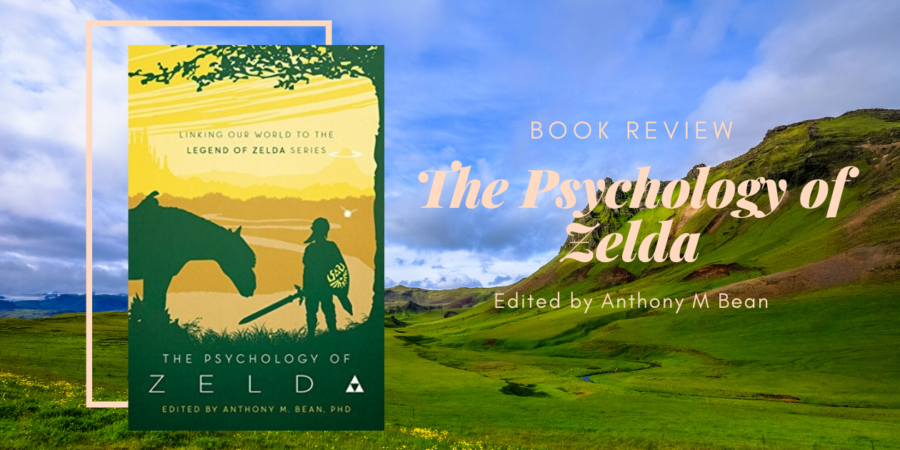I was wondering if there were any Zelda-adjacent books so I did a search and found this! The Psychology of Zelda is a collection of essays that tie concepts in psychology to aspects of the game. The essay titles are:
- Embodying the virtual hero: A link to the self
- It’s dangerous to go alone: The hero’s journey in the Legend of Zelda
- The nocturne of (personal) shadow
- The archetypal attraction
- Unmasking Grief: Applying the Kübler-Ross Five Stages of Grief model to The Legend of Zelda: Majora’s Mask
- The Protective Power of Destiny: Posttraumatic growth in the Legend of Zelda
- The Quest for meaning in the Legend of Zelda
- The Song of the Ritos: The psychology of music within the Legend of Zelda series.
- Triforce Heroes and Heroines: Transcending the opposites through the golden power
- The legend herself: From Damsel in Distress to Princess of Power
The topics covered here were really interesting, although the fact that I’ve only played Breath of the Wild hampered things a little. Still, I know enough of the series (thanks to my brother) that the game references made sense to me.
And by the way, the Rito people/birds aren’t actually discussed in The Song of the Ritos – the essay is more about how music is used in The Legend of Zelda.
I can’t comment on the accuracy of the arguments here because I’m not an expert, but I found the essays to be easy to follow along. If this is accurate, I can see this as being an interesting general introduction to certain concepts in psychology, for example, the five stages of grief; I didn’t realise they weren’t linear until the essay! I thought using Majora’s Mask was a good way to explain it.
The only thing I was a little disappointed in was the dominance of Western authors. I read through the author biographies after each essay and as far as I can make out, only one author is living in Japan (but not Japanese) and the rest are living in the West. I know that the interpretation lies in the player, but I would have liked to see a Japanese view on the game, especially when the essays were talking about gender roles and the change in Zelda through the games. Given that this is a Japanese game that is popular worldwide, it seems like a pity that this was so Western-focused.
Overall, though, I enjoyed this and finished it in a day. While I wish for more content from non-Western psychologists, I appreciated the introduction to various concepts in psychology through the game. It definitely made me want to return to playing it!
Featured Image: Photo from Canva Media Library

My husband plays Zelda, but I’ve never really gotten into it. That’s too bad there wasn’t more diverse viewpoints shared. I think that would make this all the more appealing.
It’s a pretty interesting game, though it took me a while to get it too (still terrible at the controls haha). Yeah, I would have loved to hear from a variety of people, especially Japanese psychologists since it’s a Japanese game